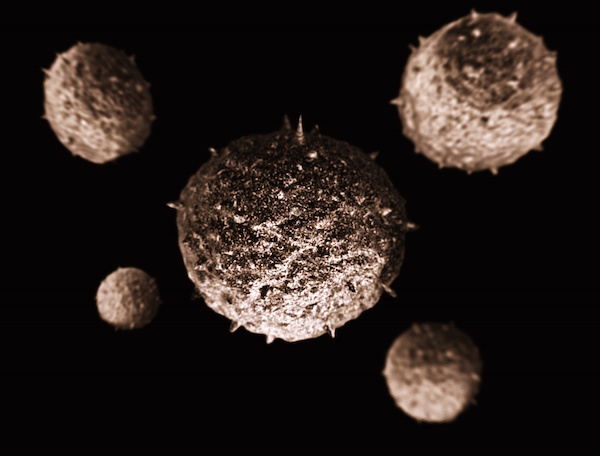
MONDAY, March 9, 2015 (HealthDay News) — Cholesterol-lowering statin drugs may slow down prostate cancer in men who are also taking medication to reduce their levels of male hormones, according to new research.
Taking a statin alongside androgen deprivation therapy slowed the progress of prostate cancer by about 10 months, said the study’s lead author, Dr. Lauren Christine Harshman, an assistant professor at Dana-Farber Cancer Institute and Harvard Medical School.
“Patients on a statin have a significantly longer time to progression,” Harshman said.
The study’s findings were presented recently at a meeting of the American Society of Clinical Oncology (ASCO) in Orlando, Fla. Research presented at meetings is generally viewed as preliminary until published in a peer-reviewed journal.
The study did not prove a cause-and-effect link between statins and prostate cancer survival, just an association.
Prostate cancer feeds on male hormones, which are called androgens and include the commonly known hormone testosterone. Cancer doctors often treat prostate cancer by using medications to suppress androgen levels in a man’s body.
Previous research has associated statin use with improved prostate cancer outcomes, said Dr. Charles Ryan, an ASCO expert and associate professor of medicine and urology at the Helen Diller Family Comprehensive Cancer Center at the University of California, San Francisco.
For the current study, Harshman and her colleagues reviewed medical data from 926 prostate cancer patients being treated with androgen deprivation therapy.
About 31 percent of the men were taking a statin at the time they began prostate cancer treatment. Researchers noted that statin users were less likely to be initially diagnosed with aggressive prostate cancer.
Tracking the men’s progress, researchers found that statin users had about 27.5 months of progression-free survival on androgen deprivation therapy. Men not taking statins had about 17 months of progression-free survival, according to the study. The link remained statistically significant even after accounting for other factors, the study authors said.
There are a couple of potential ways that statins might affect prostate cancer, Ryan and Harshman said.
The body produces male hormones “based on a cholesterol backbone,” Ryan said. By reducing cholesterol levels, statins might cause a reduction in available androgens by inadvertently robbing the body of a key building block for those hormones.
On the other hand, statins might interfere with the process through which prostate tumor cells absorb male hormones, Harshman said.
Laboratory tests have shown that statins tend to crowd out androgens, beating them in line to be absorbed by prostate cancer cells, she said.
Follow-up research and clinical trials are needed to verify this effect, Ryan said. Additionally, he noted that in this study the men were taking statins due to high cholesterol levels, not to improve their cancer treatment.
“It’s a good observation, but it still requires further study and validation,” he said.
Harshman agreed that a randomized clinical trial is needed.
“The main thing is, what can you get out of this effect? How does it change therapy?” she said.
More information
For more information on prostate cancer, visit the U.S. National Institutes of Health.
Copyright © 2026 HealthDay. All rights reserved.

